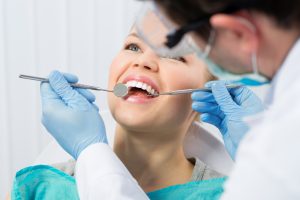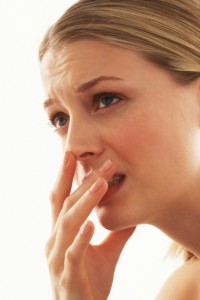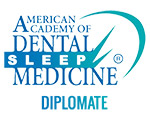 We all work hard to keep our smiles healthy with daily brushing and flossing and regular trips to the dentist, but even the most diligent oral hygiene routine can have gaps that allow for tooth decay or damage. That’s where a restorative dentist comes into play. A good restorative dentist will provide treatments that preserve the maximum amount of natural tooth structure and recreate lost dental shape and function. A restorative dentist does all of this while keeping in mind the way any treatment will impact the appearance of the smile and overall health. Suffice to say, finding a good restorative dentist is key to keeping a healthy, happy smile on your face. The good news is, the general dentist you trust with your routine oral health and hygiene visits is likely also a skilled restorative dentistry practitioner.
We all work hard to keep our smiles healthy with daily brushing and flossing and regular trips to the dentist, but even the most diligent oral hygiene routine can have gaps that allow for tooth decay or damage. That’s where a restorative dentist comes into play. A good restorative dentist will provide treatments that preserve the maximum amount of natural tooth structure and recreate lost dental shape and function. A restorative dentist does all of this while keeping in mind the way any treatment will impact the appearance of the smile and overall health. Suffice to say, finding a good restorative dentist is key to keeping a healthy, happy smile on your face. The good news is, the general dentist you trust with your routine oral health and hygiene visits is likely also a skilled restorative dentistry practitioner.
(more…)
August 9, 2017
What Does a Restorative Dentist Do?
July 21, 2015
Proper Tooth Brushing Techniques
 Brushing your teeth may be a habit that you take for granted. After all, most people begin to brush their own teeth around the age of 2 or 3 (with some adult backup), but what many of us don’t realize is we’ve never updated our tooth brushing techniques. Our teeth require different hygiene and care at different stages of our lives. One of the most essential elements of dental hygiene is proper tooth brushing, but if you’re still brushing the way mom or dad taught you as a child, you may not be cleaning your teeth effectively. Let the skilled staff at Donald Marks Family Dentistry help you make the most out of your daily tooth brushing routine. Call to schedule a dental hygiene appointment with our State Park, PA dental practice today.
Brushing your teeth may be a habit that you take for granted. After all, most people begin to brush their own teeth around the age of 2 or 3 (with some adult backup), but what many of us don’t realize is we’ve never updated our tooth brushing techniques. Our teeth require different hygiene and care at different stages of our lives. One of the most essential elements of dental hygiene is proper tooth brushing, but if you’re still brushing the way mom or dad taught you as a child, you may not be cleaning your teeth effectively. Let the skilled staff at Donald Marks Family Dentistry help you make the most out of your daily tooth brushing routine. Call to schedule a dental hygiene appointment with our State Park, PA dental practice today.
Tooth Brushing Recommendations from the Dentist State College, PA Trusts
When it comes to brushing, we recommend double checking the basics:
- Brush twice a day – brushing once in the morning and once before going to sleep is routine, and a 3rd brushing following your afternoon meal can be beneficial as well. However, all things should be done in moderation, and this includes tooth brushing. Done more than 3 times a day, brushing can damage gums.
- Check your brush – If you’re using a brush labeled “hard bristled,” one that is not American Dental Association approved, or one that is more than 3 or 4 months old, throw it out and get a new one. The ideal tooth brush should be soft or extra soft bristled to minimize damage to gums and maximize dental cleaning results. Always look for the ADA seal of approval when purchasing dental hygiene items as these have undergone more rigorous testing for effectiveness. Replace toothbrushes every 3 to 4 months to prevent contamination and maintain optimal brushing effectiveness. This includes mechanical tooth brushes. Make sure to purchase a mechanical brush that has replaceable heads.
- Check the clock – If you’re not brushing for at least two minutes, you are not thoroughly cleaning each tooth. Brushing longer than two minutes is even better. Many people gauge their brushing time using a timer, by brushing for the length of an entire song, or by brushing through a commercial break on television. Whatever trick you use, make sure to set aside at least 2 minutes every morning and evening to brush your teeth.
- Brush gently – Whether you apply a great deal of pressure while you brush or just a little, you are likely going to remove the same amount of plaque from your teeth and gums. Brush gently to avoid damaging soft tissue or causing gum recession. Holding your toothbrush with only 2 to 3 fingers like a pen, pencil, or paintbrush is a great way to build the habit of brushing with less pressure.
The Bass Method for Brushing
Many people are taught to brush their teeth as children using big circles or back and forth motions with the bristles flat against the outside and tops of teeth. Many children are never taught to brush the inside of their teeth at all. While these methods may be effective for children with poor hand eye coordination who are just developing the necessary motor skills to keep up their hygiene, there’s a reason we don’t brush our hair or wash our bodies the way we did when we were 3. Why would we continue to brush our teeth that way? For patients who want to start a more effective brushing routine, the Bass method is an option the team at Donald Marks Family Dentistry highly recommends.
How the Bass method works:
- Place your brush at a 45 degree angle to your teeth, against the gum line.
- Quickly move the toothbrush back and forth. The bristles should remain stationary while only your hand and the brush move.
- Count to ten, gently flick the bristles toward the biting surface of your tooth to shift plaque out from under gums, and proceed to the next tooth.
- Continue this process for each tooth inside and out.
- To clean the tops of teeth, place the brush flat on your biting surface and move back and forth keeping bristles stationary as you did with your other teeth.
- Count to ten and move to the next tooth. Continue until each tooth has been cleaned.
The Bass brushing method is preferred by many dentists and hygienists because it encourages increased periodontal care, and maximizes the effectiveness of each brush stroke. Ask your dental hygienist to explain or demonstrate effective brushing techniques for your, unique bite next time you visit our office.
Contact us for More Information
We’re always here to help, no matter what your dental care needs, but we’re dedicated to improved preventive care so our patients are more likely to retain their natural smiles for life. Call Donald Marks Family Dentistry to schedule an appointment today. Our State College, PA dental practice welcomes patients from neighboring communities Spring Mills, Centre Hall, Huntingdon, Altoona, Penns Valley, Boalsburg, Lemont, Bellefonte, Lewistown, and Phillipsburg.
March 10, 2015
Restore Your Good Oral Health with Comprehensive Periodontal Therapy in State College, PA
 Do you have swollen or bleeding gums? If so, you may already have periodontal disease (gum disease). If left untreated, periodontal disease can slowly deteriorate your gums and the structures that support your teeth, eventually leading to noticeable gum recession and tooth loss. Additionally, many medical studies have shown that periodontal disease is associated with more serious conditions, including diabetes, heart disease, and stroke. Don’t take chances with your good health; schedule the periodontal therapy appointment you need with Dr. Marks or Dr. Martin today. Donald Marks Family Dentistry is the leading family dentistry of: State College, PA, Park Forest Village, Spring Mills, Centre Hall, Huntingdon, Altoona, Penns Valley, Boalsburg, Lemont, Bellefonte, Lewiston, Philipsburg, Port Matilda, University Park, Pleasant Gap, Hollidaysburg, and the surrounding communities.
Do you have swollen or bleeding gums? If so, you may already have periodontal disease (gum disease). If left untreated, periodontal disease can slowly deteriorate your gums and the structures that support your teeth, eventually leading to noticeable gum recession and tooth loss. Additionally, many medical studies have shown that periodontal disease is associated with more serious conditions, including diabetes, heart disease, and stroke. Don’t take chances with your good health; schedule the periodontal therapy appointment you need with Dr. Marks or Dr. Martin today. Donald Marks Family Dentistry is the leading family dentistry of: State College, PA, Park Forest Village, Spring Mills, Centre Hall, Huntingdon, Altoona, Penns Valley, Boalsburg, Lemont, Bellefonte, Lewiston, Philipsburg, Port Matilda, University Park, Pleasant Gap, Hollidaysburg, and the surrounding communities.
Are You at Risk for Developing Periodontal Disease?
- Age: Recent studies indicate that older people have the highest rates of periodontal disease; in fact, over 70% of Americans 65 and older have periodontitis (advanced gum disease).
- Tobacco Use: Many recent studies have also shown that tobacco use could be the most significant risk factor in the development and progression of periodontal disease.
- Genetics: Some patients may actually be genetically more susceptible to periodontal disease.
- Stress: Problems with stress can make it more difficult for your body to fight off infection, including periodontal disease.
- Certain Medications: Some drugs, including oral contraceptives, anti-depressants, and certain heart medicines, can affect your oral health.
- Teeth Grinding (Bruxism): Clenching or grinding your teeth at night can put excess force on the supporting tissues of the teeth and could speed up the rate at which these periodontal tissues deteriorate.
- Other Diseases: More serious systemic diseases that interfere with the body’s inflammatory system may worsen the condition of your gums, including: cardiovascular disease, diabetes, and rheumatoid arthritis.
- Poor Diet: A diet low in important nutrients can compromise the body’s immune system and make it harder for the body to fight off infection.
State College Periodontal Therapy Appointments
We offer gentle but comprehensive periodontal therapy that may include:
- Scaling: Scaling removes tartar and bacteria from your tooth surfaces and beneath your gums.
- Root planing: Root planing smoothes your tooth root surfaces, discouraging future buildup of tartar and bacteria.
- Antibiotics: We may also recommend using topical or oral antibiotics to help control a bacterial infection.
In any case, we will work to ensure that your gums are rehabilitated and protected from further inflammation. Schedule the periodontal therapy appointment you need to stay healthy with Dr. Marks or Dr. Martin today. Donald Marks Family Dentistry is the trusted family dentistry of: State College, PA, Park Forest Village, Spring Mills, Centre Hall, Huntingdon, Altoona, Penns Valley, Boalsburg, Lemont, Bellefonte, Lewiston, Philipsburg, Port Matilda, University Park, Pleasant Gap, Hollidaysburg, and the neighboring areas.




